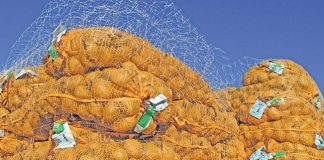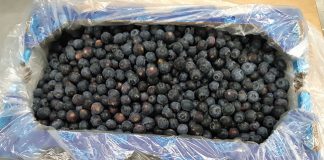Almost two weeks after the first violent protest action erupted in De Doorns and other Western Cape farming areas, it has emerged that the minimum wage of farm workers was not necessarily at the heart of these protests. The provincial leader of the DA, Ivan Meyer, blamed “ANC agitators for stirring the pot”, saying there appeared to be “a deliberate attempt to escalate the chaos in certain areas, backed by ANC resources.”
Meyer said there was evidence that busses were used to bring in people from outside the areas where protests were taking place, such as Paarl and Worcester, to swell the numbers. He said police had received reports that ANC organiser William Kamfer had allegedly illegally entered a farm in an attempt to intimidate workers and farm management.
“Eye witnesses confirmed a number of threatening remarks made, including that the ANC will ensure that no fruit is exported from this area this year,” said Meyer.
He also said that a pamphlet had been distributed in the Theewaterskloof area suggesting that the ANC was paying a select number of agitators to perform specific tasks of an unconfirmed nature. “The pamphlet thanks those who took part in the protest and informs them that they may take their ID books along to collect R150 from a list of five people,” said Meyer.
Responding to Meyer’s allegations, Songezo Mjongile, ANC Western Cape provincial secretary, released a statement saying that it was, in fact, the DA that was fuelling racial tension in the Western Cape by spreading rumours and false information.
Fabrications
“The DA is once again fabricating so-called confirmation to support its agenda to blame the ANC for its own failures and inability to deal with the substance of issues, like improving service delivery,” said Mjongile. “Instead of facing the real issue at present – which is many farmers pay their labourers the bare least possible as they hide behind the minimum wage determination – the DA sides with farmers and fail to denounce the oppression and exploitation of such vulnerable people as farm workers.”
Mjongile said that the DA was behind the Theewaterskloof pamphlet and that there was no ANC organiser called William Kamfer. And while politicians continued to award blame, it was agriculture that suffered. Damage done to farms in the Western Cape since the protests began – including the destruction of vineyards and other crops, the damage of farm infrastructure as well as loss of income, had thus far amounted to between R120 million and R140 million, said farmer’s union, Agri Wes-Cape.
But apart from the economic implication, the violent protests had also been marked by the spreading of accusations about the maltreatment of farm workers by farmers. “Agricultural importers internationally are keeping a close watch on how the situation in the Western Cape unfolds and these strikes and riots as well as the rumours that are being spread could potentially harm agricultural exports,” said Agri Wes-Cape’s Porchia Adams.
Hortgro, the umbrella body for the fruit industry, expressed its disgust at the events, saying that there were clear indications that the unrest was not primarily about wages or other ‘farming issues’. Instead, it was instigated by people frustrated by not having jobs and issues related to lack of services and infrastructure within rural communities.
Unrealistic
While agriculture willingly plays a leading role in rural communities, seeking to improve both working and living conditions of farm workers, “it is impossible and unrealistic to expect any single sector to address all the social problems in rural areas,” said Hortgro executive director Anton Rabe.
According to Hortgro’s ethical audits since 2008 on more than 1 000 farms out of the almost 6 0000 in the Western Cape, 100% of farms audited complied with minimum wages. Of these farms, 77% pay more than the minimum wage. In addition, 74% of farms provided free transport, 47% provided free housing, 47% provided life skills and adult basic education and training, 37% provided crèches and after-care facilities for school children and 23% of farms had on-site medical facilities.
“From feedback obtained from our members it is clear that many farmers have suffered extensive losses and that farm owners, management and workers have been traumatised, physically assaulted and intimidated by forces from outside the respective regions,” said Rabe.
The table grape farmer’s representative body, South African Table Grape Industry, said the violent protests in the De Doorns area led to an estimated 50ha out of the 3 956ha of table grape production in the region being destroyed. This will have a negative social and financial impact on the area.
To be reviewed
Meanwhile, labour minister Mildred Oliphant said her department would be calling on all interested parties to comment on the possibility of reviewing the sectoral determination for farm workers which prescribed minimum wages and conditions of employment.











